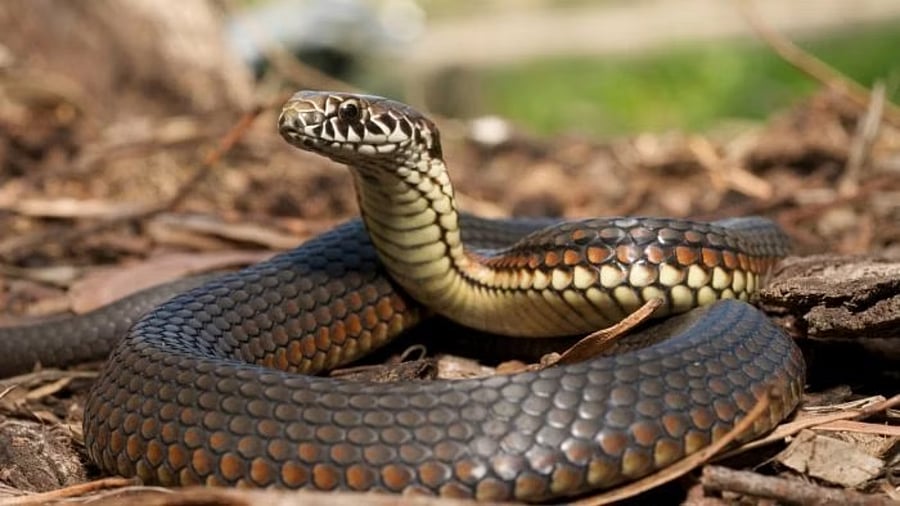
Representative image of snake.
Credit: iStock Photo
Hubballi: India's first serpentarium focusing on research and snakebite management will open on February 10 in Hunsur, Mysuru district, giving a major shot in the arm for tackling deaths caused by venomous reptiles in Karnataka.
The advanced scientific lab at the unit is equipped to extract venom from at least seven species of highly venomous snakes for developing anti-venom that is usually in short supply in medical facilities.
And unlike other snake parks and venom extraction centres in India, the unit in Rathnapuri village will collect venom from a variety of captive snakes, which would be supplied to state-owned or private companies in the state for producing Karnataka-specific anti-venom.
The lab will follow standards prescribed by the World Health Organisation for venom extraction.
Apart from collecting venom of the ‘big four’ — spectacled cobra, common krait, Russell’s viper and saw-scaled viper — scientists are planning to collect venom from Malabar pit viper, hump-nosed pit viper and the world’s longest venomous snake, the king cobra. The ‘big four’ are said to be behind a large number of human deaths in the country.
Gerard Martin, co-founder of the Liana Trust that is setting up the serpentarium, said that snake bites in rural areas are one of the major reasons for accidental deaths in India.
“However, the anti-venom that is being produced currently in India is not completely effective against snake bites as composition of snake venom varies from region to region. There is a need to formulate region-specific anti-venom against each venomous snake,” he said.
The lab has received permission to house approximately 400 snakes at the serpentarium.
In collaboration with the Evolutionary Venomics Lab at the Indian Institute of Science, Bengaluru, Liana Trust has been conducting studies on toxicity and DNA profiling of each venomous snake.
The Hunsur serpentarium and lab will provide quality venom for free for anti-venom production and research.
As of now, Irula Snake Catcher’s Cooperative Society, Chennai, is a major venom collection unit in the country. But the method that is followed at the moment involves capturing wild snakes.
But “Hunsur serpentarium will captive breed these snakes and extract venom, without disturbing the ecological disbursement of the snakes”, Martin said.
Principal Chief Conservator of Forests Subhash Malkhede flagged the "perennial" shortage of anti-snake venom serum at medical facilities in Karnataka. "With this serpentarium, we are hopeful of getting a good quantity and quality of Karnataka-specific venom antiserum that is 90% effective against snake bites,” he said.
Apart from that, behavioural and ecological research of snakes will enable a deeper understanding of the dynamics of snakebites and inform effective mitigation.
Kartik Sunagar, one of the leading scientists in the study of venom in animals and CEO of Evolutionary Venomics Lab, said having access to snake venom is vital for research. “My lab is undertaking research to innovate advanced strategies for treating death and disability caused by snakebite,” said Sunagar.
Highlights - Making hiss-tory Unlike other snake parks, Hunsur unit will collect venom from a variety of captive snakes The venom would be supplied to state-owned/pvt companies in the state for producing Karnataka-specific anti-venom The lab has received permission to house approximately 400 snakes at the serpentarium
Quote - “The anti-venom that is being produced currently in India is not completely effective against snake bites as composition of snake venom varies from region to region. There is a need to formulate region-specific anti-venom against each venomous snake - Gerard Martin co-founder of the Liana Trust